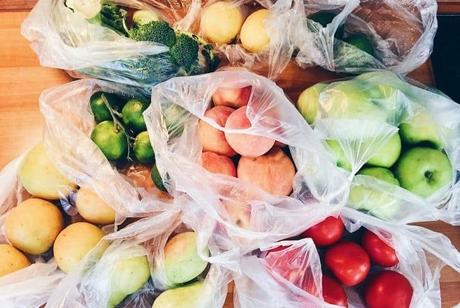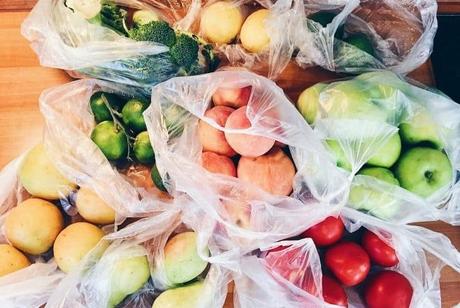Can Plastic Bags be Recycled?
As part of the rising environmental concerns to manage, reduce, and combat plastic pollution and environmental impacts associated with plastics, the world is in the current era greatly focused on the recycling of plastics. But what exactly is recycling?
To recycle is to convert a used or waste material or product into a new product, material, or object. It is aimed at preventing the wastage of potentially useful materials and reducing the consumption of fresh raw materials, reducing environmental pollution and saving energy. Not all plastic materials can be recycled.

However, some, including plastic bags, can be recycled. The ability of a plastic to be recycled depends on a number of factors, including the location where one plans to recycle, as well as the material used to make the plastic. Here is more information that can shed light on plastic recycling, particularly plastic bags.
How Long Does it Take for Plastic Bags to Decompose?
Plastics are made from oil, and they take ridiculously long to decompose. Normally, plastics decompose in landfills after about 1,000 years, plastic bottles take 450 years or more, while plastic bags take anywhere from 10 to 100 years to decompose. The rate of decomposition also depends on other conditions, such as the landfill itself, as well as if the bag is exposed to the sun.
According to The Balance Small Business, plastic waste takes the longest to decompose, being beaten by disposable diapers, which take 250-500 years, aluminum cans, which take 80-200 years, paper waste which takes 2-6 weeks, and food waste, which takes up to 6 months, depending on the type of food.
What Kind of Plastic Bags Can be Recycled?
1. Plastic bags and wraps: Plastic bags, as well as some plastic wraps, can be recycled, just not in the curbside bin. In most cases, you have to recycle these items through a store drop off, although some communities allow curbside recycling.
Most communities cannot recycle plastics and they end up landfilling them. As such, store drop-offs help a lot by taking back used plastics and recycling them. Most large grocery stores or retailers have a receptacle for disposing of used plastic bags. However, before dropping them off, make sure they are dry, clean and empty.
2. HDPE and LDPE plastic bags: High-density polyethylene, also known as HDPE or #2 plastic, as well as low-density polyethylene, also known as #4 plastic or LDPE, can be placed in a drop-off box in centres and grocery stores that can recycle plastic bags. These types of plastic bags make up most bread bags and Ziploc bags.
3. Plastic Wrappers: Plastic wrapper, like those from toilet paper, diapers, and paper towels, can also be recycled. They are made from soft plastics that are allowed at collection centres, like those in supermarkets, and other recycling centres.
4. Bubble wrap: Bubble wrap can be recycled, but should be placed along with other recyclable plastic bags at collection points. However, before depositing bubble wrap, plastic bubble and air pillows there, make sure you pop the bubbles and pouches first.
5. Cereal box liners: Many cereal box liners are made from HDPE film. Before dropping these plastics at the recycling locations, make sure you have removed every cereal residue that might be in the bag, to avoid contamination.
6. Zip-top bags and sandwich bags: They are made from plastic film that makes dry cleaning film, the plastic that wraps toilet paper and grocery bags. However, before dropping them off at the recycling centre, empty them completely and make sure there is no residue.
What Can be Done With Old Plastic Bags? (Creative Uses of Old Plastic Bags)?
1. Making plastic bag flowerpots: you can turn the plastic bags into yarn and crotchet them together, making a flowerpot. You can make any number of sizes to cover up all the plants
2. Making plastic bag flowers: you can turn old plastic bags into decorative flowers that can be used to spruce up any type of gift or other items. You only need to cut the bag into strips and form it into a bow-shaped flower
3. Bagging stuff while on holiday: when on holiday, you should carry some plastic bags, to bag liquids, such as perfumes and shampoos, and also put your dirty shoes or clothes away from your other clean clothes.
4. Making an upcycled plastic jump rope: you can tie a number of plastic bags together, putting in some soft materials, and make a jump rope. You can also fuse your bags into strips and then tie them together, braiding tightly to create a jump rope. The DIY jump rope can be fun and loved by kids, fitness junkies and environmentalists.
5. For car sickness: plastic bags come in handy while on the road, in case you or your passenger gets car sick. These bags should not have holes in them or double-bag them so that they be effective and prevent any leakages.
6. Making plastic bag ghosts: Halloween among other holidays can be spiced up by the addition of plastic bag ghosts. Just look for some bags laying around in the house and get creative, to make your own plastic decorations
7. Making plastic bag baskets: it is close to the plastic bag flowerpot mentioned above. You will use several plastic bags, crotchet them together and make a sizeable basket. It is an eco-friendly way of using the plastic bags, rather than having them in a landfill
8. Making plastic bag wallets and coin purses: you will fuse some plastic bags together, by the use of an iron.
9. Collecting your pet’s waste: if you have a pet, you will more likely have a pet waste bag. Instead of buying pre-packed waste bags, just reuse your old plastic shopping bags to collect the pet’s waste.
Is it Possible to Recycle Plastic Bags at Home?
Plastic bags at home can only be reused or collected for recycling by other agencies
Recycling by others:
1. Check with your local area: before recycling plastic bags at home, ensure the rules in your local area allow for it. If your area does not allow for such recycling or does not accept plastic bags with other recyclables, it will be hard to proceed to the next steps.
2. Collect as many as possible: you would not be able to recycle just one plastic bag, but instead, you would need several more. Keep a bag collection bin in your house, such as a big garbage bag for all bags. This way, you will be able to compact them easily and fit about 50 to 100 plastic bags in one garbage bag.
3. Clean the bags: after collecting as many bags as possible, and after ensuring you have the green light to recycle, you need to remove anything inside the bags, including receipts, crumbs and stickers. Their presence contaminates the bag load. Then, go ahead and clean the bags
4. Confirm the bags are recyclable: recyclable bags have a #2 or #4 plastic symbol (HDPE or LDPE respectively) on them. The symbol is often printed on the front of or the bottom of the plastic bag. With either number printed on the bag, means the bag is made of recyclable material. If there is no #2 or #4 symbol, the bag will not be recyclable, and as such, you can only reuse the bag in other ways around the house, before eventually throwing it away.
5. Take them to the recycling center or agency: most grocery retailers have a collection bin where they collect such plastics. You need to bring the collected, clean and dry recyclable plastic bags to the collection bins, usually at the front entrance of such stores and they will take care of the rest
Reusing at Home
1. Lining your garbage bins with the plastic bags: you can use plastic bags at home as liners to protect your garbage bins. This way, you will continue to collect more garbage, and use the plastic bag over and over for as long as it will hold.
To ensure your bin remains a bit clean, cut up the plastic bags and tape them to the bottom of the garbage bins at home, preventing any liquids from leaking into the can from the garbage.
Additionally, the plastic bags can also be used to line any other bins in the home that get wet, like the recycling or compost bins
2. Collecting garbage: you can reuse plastic bags by collecting garbage in mini bins all around the home, like in the bathroom or bedroom. Plastic bags can also be used to collect garbage in your car. Once they are full, simply pull out the plastic bags and replace them with a new one.
3. Wrapping delicate items in the plastic bags: plastic bags can also be reused at home to protect delicate items, like glass figurines and family heirlooms. Wrapping these items in plastic bags ensures you can store them away for future use or display, without putting them at the risk of getting scratched. You can also use the bags to protect some delicate items when moving.
4. Reusing them for groceries: plastic bags can be reused to bag groceries or for bagging other items. Before doing so, make sure the bags do not have any holes in them and are in perfect condition to hold items.
5. Storing other plastic bags: if you are planning to keep a lot of plastic bags in the home for these and other uses, bag them in a big-enough plastic bag. Doing so avoids messes in the home and ensures they are not a hazard to children and pets.
It also ensures no more plastic waste is out there in the environment uncontrollably, polluting the land, water and air. For easier access, keep the plastic bags somewhere handy like in the kitchen or garage.
6. Covering areas that get messy in the home: you can also reuse plastic bags to cover areas that get messy in your home. All you need to do is cut up the bags and taping them down on tables or countertops, thereby protecting them. Plastic bags can also be used to cover countertops when cooking.
7. Filling pillowcases: you can also use plastic bags as stuffing for your pillowcases, instead of buying stuffing from the store. You will need to ball the plastic bags up and then stuff them in pillowcases to keep them fluffy. You can also make a dog bed for your dog by stuffing plastic bags in a large pillowcase.
References:
https://www.huffpost.com/entry/how-to-recycle-plastic-bags_n_5c4b80f8e4b0e1872d43b9a4
https://experthometips.com/wow-39-unexpected-ways-to-reuse-plastic-bags
https://blog.nationalgeographic.org/2018/04/04/7-things-you-didnt-know-about-plastic-and-recycling/


